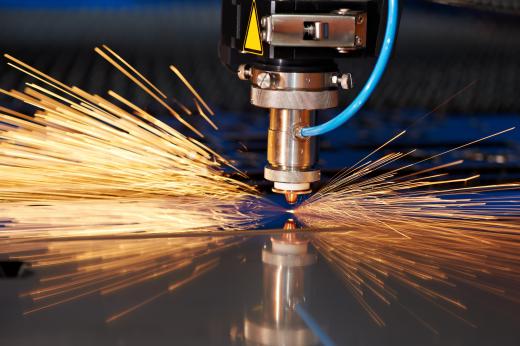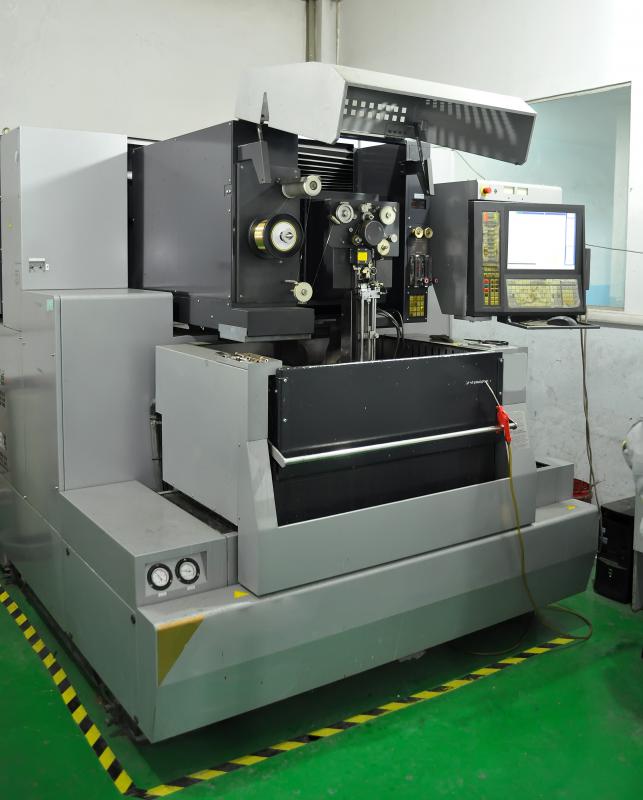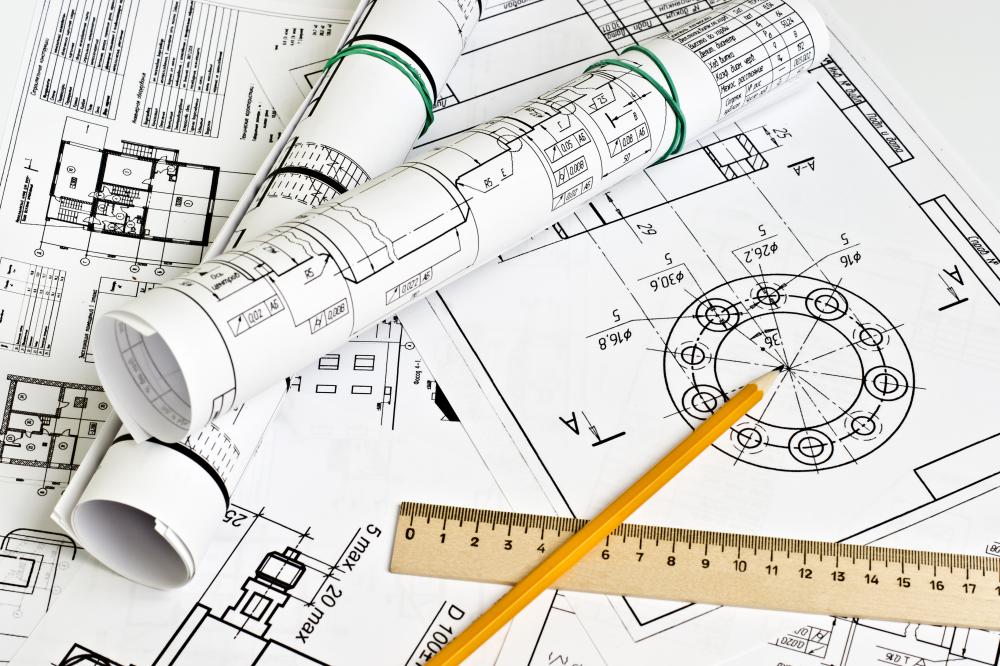At WiseGEEK, we're committed to delivering accurate, trustworthy information. Our expert-authored content is rigorously fact-checked and sourced from credible authorities. Discover how we uphold the highest standards in providing you with reliable knowledge.
How do I Become a CNC Operator?
The best way to become a computer numerically controlled (CNC) operator is usually to get a basic education in computer programming and then undergo specialized training, often provided directly by your employer. CNC operators work in a number of different settings and might encounter several types of machines and codes. Foundational understanding of digital engineering is the most important first step in most cases, but it isn’t usually the last. With few exceptions, you won’t have to do too much work on your own before you’re hired. Employers usually spend a lot of time training their workers on their machines specifically, and depending on the job this can take a lot of time. You should usually be prepared to start in a more minimal role and then work your way up the ranks, but in most instances getting started somewhere isn’t difficult provided you have the basic skill set and the passion to learn more.
Knowledge Basics

There aren’t usually any strict educational requirements to become a CNC operator, but a demonstrated interest in science, mathematics, and physics will usually help. If you can, take a lot of these courses in high school. Studying blueprint drafting, machine operations, and metal and/or plastic working is really useful too, though these courses aren’t available in all places. If you know that this is the field you want to go into, it might make sense to see if you can take additional classes after school or on weekends at a local community college or vocational school. In some places you may even be able to get credit for these sorts of studies that can help you graduate faster.

Graduating high school is really important, since many employers won’t hire you unless you’ve met this basic threshold — though in most cases an equivalency certificate, like a General Educational Development (GED), will count. Just the same, you’ll usually stand out as an applicant if you have more specific training. If you’re an attractive candidate from the beginning you may also be able to command a higher salary.

Having a basic knowledge of computer-aided design (CAD) and computer-aided manufacturing (CAM) software is often really helpful in this regard. You can sometimes lean this a trade or vocational school, and a number of courses are online. Depending on the programs in your area, you may actually be able to enroll in machinist or digital programming courses, all of which can show both an aptitude and an interest in the work.
Specific Training

It can be really difficult to gain expertise in this field without actually doing it, though, which is one of the main reasons employers offer on-site training for their employees. Knowing how a specific machine works in practice is a lot different from having studied the theory of why it works. Here you’ll learn exactly how a given machine is operated and how that operation can be translated into computer coding. For example, a CNC operator who works with laser cutting machinery will probably study both the laser cutting machine and the various methods by which it can be done. In this way, he or she will be able to understand both the programming and the way those programs are translated and used.

Most of these courses are limited to people who have already been hired, but depending on the company you may be able to enroll without having a job in hand. This is most common with major distributors and huge conglomerate corporations; in these instances they often use training courses as a means of recruiting talented workers. You’ll usually be able to learn all about these sorts of opportunities by visiting specific employer websites or calling representatives in companies’ Human Resources divisions.
Broad Importance of the Role

Today, the main purpose of a CNC operator is to take machine blueprints and to program the code and information into the computer performing the task. One machine can be responsible for many individual tasks, and it is the operator's job to make sure that the individual steps are programmed correctly. He or she also looks for the most time and cost efficient methods of programming.

Assembly lines were updated and rebuilt with numerically controlled machines beginning in the 1940s and 1950s. Their purpose was to take the recurring functions performed and to update them so they could be quickly analyzed and carried out by computers. The information did not need to be individually logged or handled, but instead become a part of a long tape that read the information more quickly and more efficiently than before. The programmers and overseers of the individual functions that needed to be added into the machines became known as CNC operators.
Starting Your Job Search
In order to become a CNC operator, of course, you must actually land a job working with or programming these machines. Many industries hire people into these fields and getting started is usually a matter of finding open positions, submitting a timely application packet, and completing any required interviews or on-site skill demonstrations. You should also be prepared to start at a junior level. Even if you’ve had a lot of prior training, it’s common for new recruits to be placed in the most entry-level positions with the least favorable hours, but with time and persistence you’ll usually be able to earn seniority and increased responsibility.
AS FEATURED ON:
AS FEATURED ON:

















Discussion Comments
This definitely sounds like a job that you would have to go to a CNC operator course for. Just reading through the article, I doubt anyone could pick up all the skills necessary to do this job from on the job training. You probably need hours in a classroom before you're qualified to work as a CNC operator.
It sounds like it would be worthwhile though. From what I understand, most people that have computer programming type jobs get paid pretty well. They also seem to enjoy a lot of job security, because computers don't seem to be going away anytime soon!
@JaneAir - CNC machine operator jobs definitely sound they mix science and engineering with practical applications. I think this would be a really good job for someone with a lot of problem solving skills.
Also, I would point to stuff like this when people say that advances in technology take away jobs from live people. Before there was computerized machinery, there was obviously no need for a CNC operator. So you might say machines created this job!
I had no idea a job like these even existed. However, I shouldn't be surprised since pretty much everything is computerized these days. I think it makes a lot of sense that you have to know exactly how the machine you're programming works before you do any CNC machine programming.
When you program something to do a certain action, you pretty much have to instruct it on every little detail. Someone once told me a computer is only as "smart" as a programmer makes it, and I think that's true. So you definitely have to have firsthand knowledge about what a machine does (or is supposed to do) before you can program it.
Post your comments